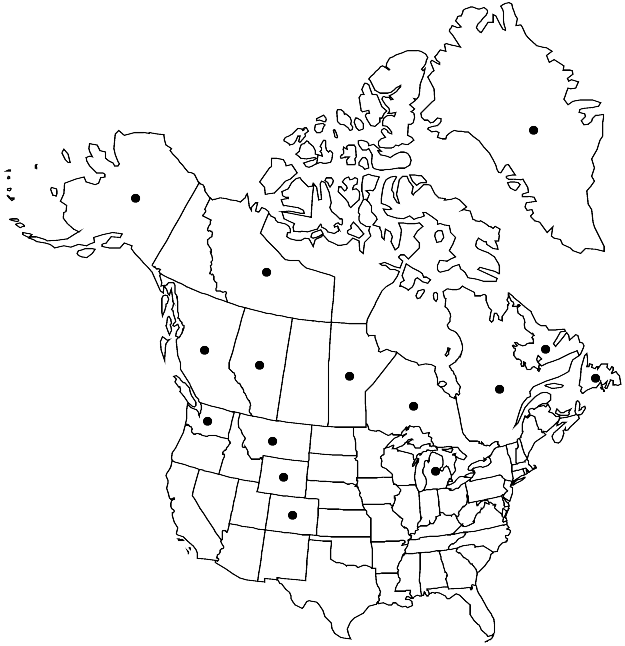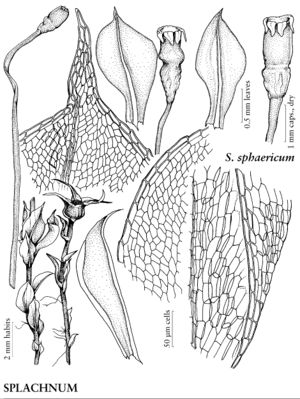Splachnum sphaericum
Sp. Musc. Frond., 55. 1801.
Plants light green or yellow-green. Stems 0.5–3 cm. Leaves somewhat crowded at stem apices, broadly obovate, 2.5–3.5 mm; margins entire or toothed distally, not bordered; apex abruptly short to long-acuminate; costa disappearing in acumen just before apex. Seta yellow, becoming reddish, 1.5–10 cm, flexuose. Capsule urn orange-red, 2 mm; hypophysis green when mature, redbrown and wrinkled upon aging and drying, ± spheric to obovoid, slightly wider than urn, weakly rugose to wrinkled when dry; operculum hemispheric, apiculate; exostome teeth inserted below mouth, connate in pairs, orangebrown. Spores spheric, 7–13 µm, yellow-green.
Phenology: Capsules mature summer.
Habitat: Dung of large boreal herbivores (such as moose), muskeg, boggy habitats
Elevation: low to high elevations
Distribution

Greenland, Alta., B.C., Man., Nfld. and Labr., N.W.T., Ont., Que., Alaska, Colo., Mich., Mont., Wash., Wyo., n, c Europe, n Asia
Discussion
Plants of Splachnum sphaericum often grow intermixed with S. luteum in western Canada and central Alaska. Unlike in other North American species of Splachnum, the hypophysis is scarcely wider than the capsule and is green upon maturity, only turning purplish as it ages and dries. Immature sporophytes of the other North American species of Splachnum resemble the mature sporophytes of S. sphaericum. The gametophyte of S. sphaericum can be distinguished from the other North American species by its broadly obovate, narrowly acuminate leaves. The hypophysis of S. sphaericum is much more strongly scented than that of S. luteum. Because of the size, shape, and color of the hypophysis, S. sphaericum could be confused with Tetraplodon mnioides, but T. mnioides is usually found growing on carnivore droppings in drier habitats and has oblong-obovate leaves that narrow abruptly.
Selected References
None.
